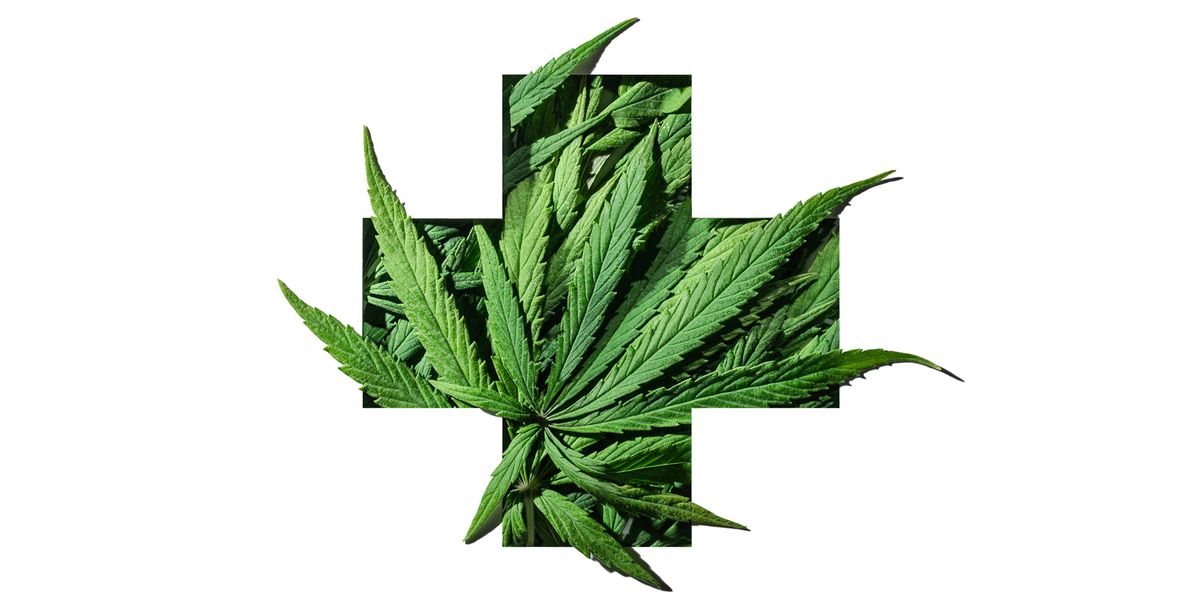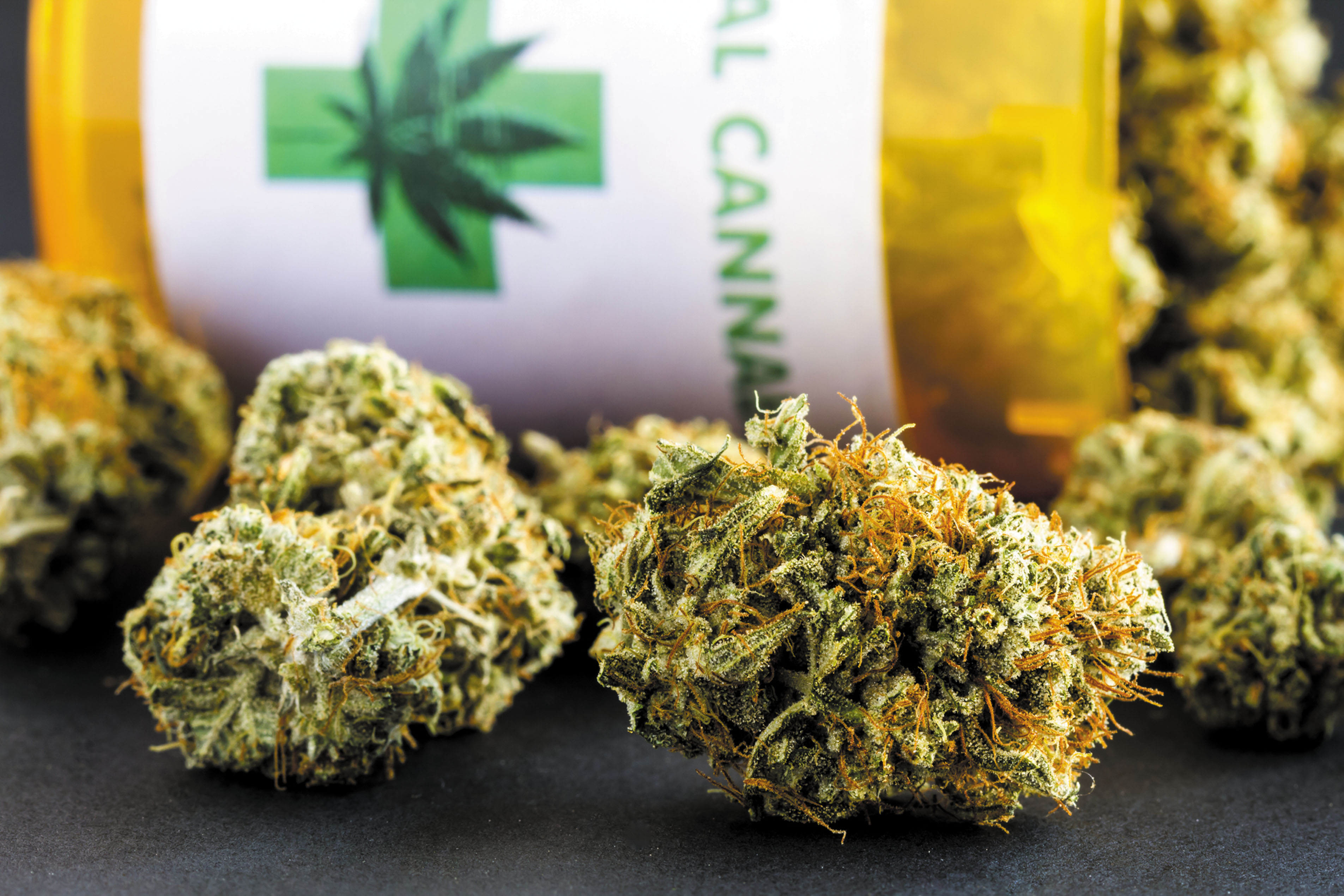How Clinical Marijuana Is Altering Discomfort Administration Approaches in Medicine
Medical cannabis is improving how we come close to discomfort monitoring in medicine today. Its unique communication with the body's endocannabinoid system provides new opportunities for alleviation, specifically for persistent discomfort patients. As more people seek choices to traditional drugs, it is crucial to discover the benefits and obstacles this shift provides. What implications does this have for customized therapy choices and client treatment? Let's check out the evolving landscape with each other.
Understanding Medical Cannabis and Its Parts
Clinical cannabis is a powerful device suffering administration, many thanks to its unique parts. You'll locate that it contains different cannabinoids, like THC and CBD, which connect with your body's endocannabinoid system. THC, or tetrahydrocannabinol, is recognized for its copyright impacts and can assist lower pain assumption while advertising leisure. On the various other hand, CBD, or cannabidiol, uses pain relief without the high, making it an eye-catching option for those that like to prevent psychoactive results.
In enhancement to cannabinoids, terpenes play a substantial role in the restorative impacts of cannabis. These aromatic compounds not only add to the plant's aroma however likewise boost its pain-relieving buildings. By comprehending these components, you can make informed choices about making use of medical marijuana for discomfort administration, tailoring your strategy to fit your specific demands and preferences. Eventually, this knowledge equips you to browse your discomfort alleviation journey successfully.

The Scientific research Behind Cannabis as a Painkiller
While lots of people look for different discomfort alleviation techniques, the science behind cannabis exposes its efficiency as a natural analgesic. When you eat marijuana, these cannabinoids bind to receptors in your brain and immune system, assisting to modulate pain understanding.
Research reveals that marijuana can reduce chronic pain, making it especially useful for conditions like joint inflammation, fibromyalgia, and neuropathic discomfort. In addition, the anti-inflammatory residential or commercial properties of CBD can reduce pain without the psychoactive impacts connected with THC. This double activity makes cannabis a versatile choice for many pain monitoring techniques. By comprehending these systems, you can appreciate just how marijuana not only alters the discomfort action however also improves your overall health, supplying a holistic strategy to pain relief.
Contrasting Marijuana With Traditional Discomfort Monitoring Options
When thinking about discomfort alleviation, you may wonder how marijuana compares to conventional options like opioids or NSAIDs. While marijuana has shown appealing efficiency in taking care of pain, it's necessary to weigh its advantages against prospective negative effects. Allow's discover just how these 2 methods compare in your discomfort monitoring journey.
Efficacy of Marijuana
How does cannabis pile up versus traditional pain administration alternatives? Many individuals locate marijuana to be reliable in easing chronic pain, typically citing its ability to lower pain without the need for opioids. Research study indicates that marijuana can target particular discomfort pathways, providing alleviation for problems like joint inflammation and neuropathy. Unlike standard drugs, which could include a long listing of side impacts and dependency problems, marijuana supplies a different approach that some clients like. You might notice that while opioids can dull discomfort, cannabis tends to improve your overall experience by improving mood and sleep. This complex impact makes marijuana an appealing alternative for many, especially those trying to find an extra natural solution in their pain management journey.
Negative Effects Comparison
Although typical pain administration options like opioids and nonsteroidal anti-inflammatory medicines (NSAIDs) are commonly used, they frequently include a series of side impacts that can influence your lifestyle. Opioids can cause reliance, constipation, and nausea or vomiting, while NSAIDs could trigger cardio threats and intestinal issues. In comparison, clinical marijuana often tends to have a various negative effects account. While you could experience completely dry mouth, wooziness, or exhaustion, these effects are normally less severe than those associated with opioids. Many users report that marijuana gives effective discomfort alleviation without the danger of addiction. By contrasting these alternatives, you can make a much more educated decision about your pain administration method, evaluating the advantages and drawbacks of each technique (Kentucky Medical Marijuana Doctor).
Client Experiences: Success Stories and Reviews
Numerous clients like you have found relief through medical marijuana, sharing inspiring stories of their recovery trips. These testimonies highlight not simply discomfort alleviation, yet a transformation in their general top quality of life. You have actually obtained the possibility to explore these powerful experiences and see just how marijuana could suit your very own discomfort management plan.
Personal Recovery Journeys
As people seek relief from persistent discomfort, countless healing trips highlight the transformative power of clinical marijuana. You may hear regarding those that've swapped traditional medicines for marijuana, experiencing less side effects while appreciating improved performance. Your trip could mirror theirs, loaded with possibilities and renewed toughness as you explore the healing possibility of medical marijuana.
Transformative Pain Relief
The tales of people discovering relief via clinical marijuana illustrate its prospective for transformative discomfort alleviation. You might learn through somebody who had a hard time with persistent pain in the back for years, only to uncover that a details strain of cannabis markedly decreased their discomfort. One more individual could share exactly how, after battling migraine headaches, they discovered that a cannabis-infused oil not only relieved their pain but improved their total lifestyle. These endorsements highlight a common style: the capability to redeem day-to-day tasks as soon as hindered by discomfort. Individuals frequently report less negative effects compared to conventional medications, leading to a newly found feeling of liberty. As these experiences spread, extra people are exploring clinical marijuana as a practical option for managing their discomfort successfully.
Lawful Landscape and Availability of Medical Marijuana
While navigating the evolving landscape of clinical cannabis can be difficult, understanding the legal frameworks and availability options is crucial for patients seeking alleviation. Laws vary substantially from state to state, so it's important to familiarize on your own with your neighborhood guidelines. Some states have actually legalized medical marijuana entirely, while others may still enforce restrictions or otherwise permit it in any way.
To access clinical cannabis, you normally need a recommendation from a certified healthcare provider, highlighting the relevance of finding a physician experienced about marijuana treatments. As soon as you acquire a suggestion, you can request a medical marijuana card, which grants you access to dispensaries.
Remember that also in states where marijuana is legal, there might be limitations on the kind of items offered, along with amount limitations. Remaining informed concerning these policies can equip you to make the most check my source of the benefits medical cannabis has to use.
Obstacles and Considerations in Integrating Cannabis Into Therapy

Additionally, there's the problem of prospective side effects, which can vary from moderate to serious. You'll also encounter the preconception surrounding marijuana use, both from healthcare suppliers and people, which may hinder seminars concerning treatment choices. Recurring research study is needed to comprehend the long-term impacts and efficiency of cannabis in discomfort management. These factors to consider highlight the demand for health care specialists to stay educated and technique marijuana integration thoughtfully.
The Future of Pain Management: Fads and Forecasts
As health care remains to progress, discomfort monitoring is readied to go through considerable changes that could reshape therapy techniques. You'll likely see a shift towards more personalized medication, where therapies are tailored to your unique hereditary make-up and particular pain conditions. Clinical marijuana is anticipated to play an important function in this development, supplying safer choices to opioids and lowering dependancy on typical medicines.
Telemedicine will certainly likewise become extra prevalent, enabling you to talk to professionals from the comfort of your home. This comfort can boost access to discomfort administration sources and assistance. In addition, innovations in innovation, such as wearable devices, will certainly enable real-time surveillance of pain degrees, equipping you to handle your condition better.
As research proceeds to validate the advantages of medical marijuana, you can expect much more healthcare suppliers welcoming these treatments, eventually leading to boosted recommended you read results and quality of life.
Regularly Asked Questions
What Are the Prospective Negative Effects of Clinical Cannabis for Pain Management?
When utilizing clinical marijuana for pain monitoring, you might experience side results like dizziness, dry mouth, fatigue, or changes in cravings. It's crucial to monitor how your body reacts and consult your healthcare service provider if required.
How Is Dosage Determined for Medical Marijuana suffering Therapy?
When identifying dosage for medical cannabis, you think about variables like your weight, discomfort intensity, and private resistance. It is very important to start low and progressively enhance up until you discover one of the most reliable dose for your requirements.

Can Medical Marijuana Interact With Various Other Drugs?
Yes, medical cannabis can interact with other medications. It's vital to review your existing prescriptions with your cannabis dispensary jobs hiring doctor to prevent prospective adverse effects or minimized performance of your treatments while utilizing marijuana.
Is Medical Marijuana Effective for All Kinds of Discomfort?
Clinical marijuana isn't reliable for all sorts of discomfort. It may aid with persistent pain, however feedbacks vary. You should seek advice from a healthcare expert to figure out if it appropriates for your details problem.
What Are the Expenses Connected With Medical Marijuana Treatment?
When taking into consideration clinical cannabis therapy, you'll discover costs differ extensively. Costs consist of appointments, item prices, and potential insurance coverage. It's vital to research and budget plan as necessary for an extensive understanding of your monetary commitment.
Medical marijuana is reshaping just how we approach discomfort administration in medication today. By comprehending these elements, you can make informed decisions about making use of clinical cannabis for pain administration, customizing your technique to suit your certain requirements and choices.Research reveals that cannabis can reduce persistent pain, making it specifically helpful for problems like joint inflammation, fibromyalgia, and neuropathic pain. By understanding these systems, you can appreciate exactly how cannabis not just changes the pain response yet likewise boosts your general well-being, offering an all natural technique to pain relief.
What Are the Prospective Side Results of Medical Cannabis for Discomfort Administration?